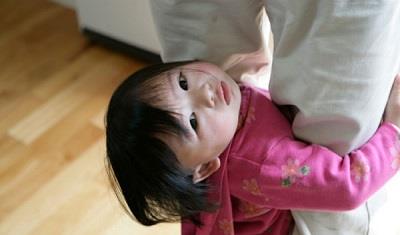There are many ways to help improve your baby's overly clinging without making the baby cry or feel insecure, such as engaging the baby in another activity or creating a transition.
The following methods can help strengthen the psychology of young children to get used to being away from their mothers before they reach school age.
Get your baby engaged in an activity Get
your baby and caregiver engaged in doing something together before you leave. Time to go, kiss your baby goodbye quickly and immediately go to the door. Your baby may cry, but what you are doing with the babysitter will distract your baby as soon as you are gone. Not being able to focus on one thing for too long is a trait of early childhood psychology that you can take advantage of in this situation.
Use a surrogate
Something to remember about a parent can help your baby better cope with your absence, so when you go out, give your baby a personal souvenir. It can be anything from a photo to your warm t-shirt or a special brooch. It is also possible that the surrogate will have the opposite effect on the child's psychology by constantly reminding him of you, so after returning, you should ask the babysitter if he is excited by the object. or not. An object for children's psychological security such as a blanket, a soft stuffed animal or even their own thumb can be a source of comfort.

Fear of leaving mother is not uncommon in the psychology of young children, you should help them overcome this fear before they reach school age.
Form a transition
If you are out of the house at night, have a babysitter arrive half an hour early. Take a half hour before you leave so that you, the baby and the babysitter can do some activities together. When your baby looks happy with the babysitter, it's time to retreat silently. If your baby brings you a book and wants you to read, you can steer him in the other direction by saying, "Did you see she wanted to read with me?" Or if your baby wants to be held, suggest that the babysitter loves doing this job. One thing you should know about baby psychology is that as long as the parent is there, the baby won't want to be around babysitters. So, if possible, let your baby's dad play a transitional role. Thus, the transition may be more gentle if the father acts as the middleman when the mother leaves, and vice versa.
Let your baby learn to cope
No parent wants their child to have undesirable sadness, but dealing with separation is one of the skills a baby needs to learn in life. If you have tried everything but it doesn't work, it's best to do nothing. This is the time for your baby to understand that not everyone can always make their way. Children have to learn how to handle it. If your baby is so attached to you that you cannot leave the room without any resistance, your fulfillment of all of his requirements will only make the situation worse. Your baby will be safe at home, so don't worry if your baby cries and cries when you leave. Before you leave, try to talk to your baby in a gentle voice but make sure everything will be okay and don't feel guilty about leaving the baby at home.












